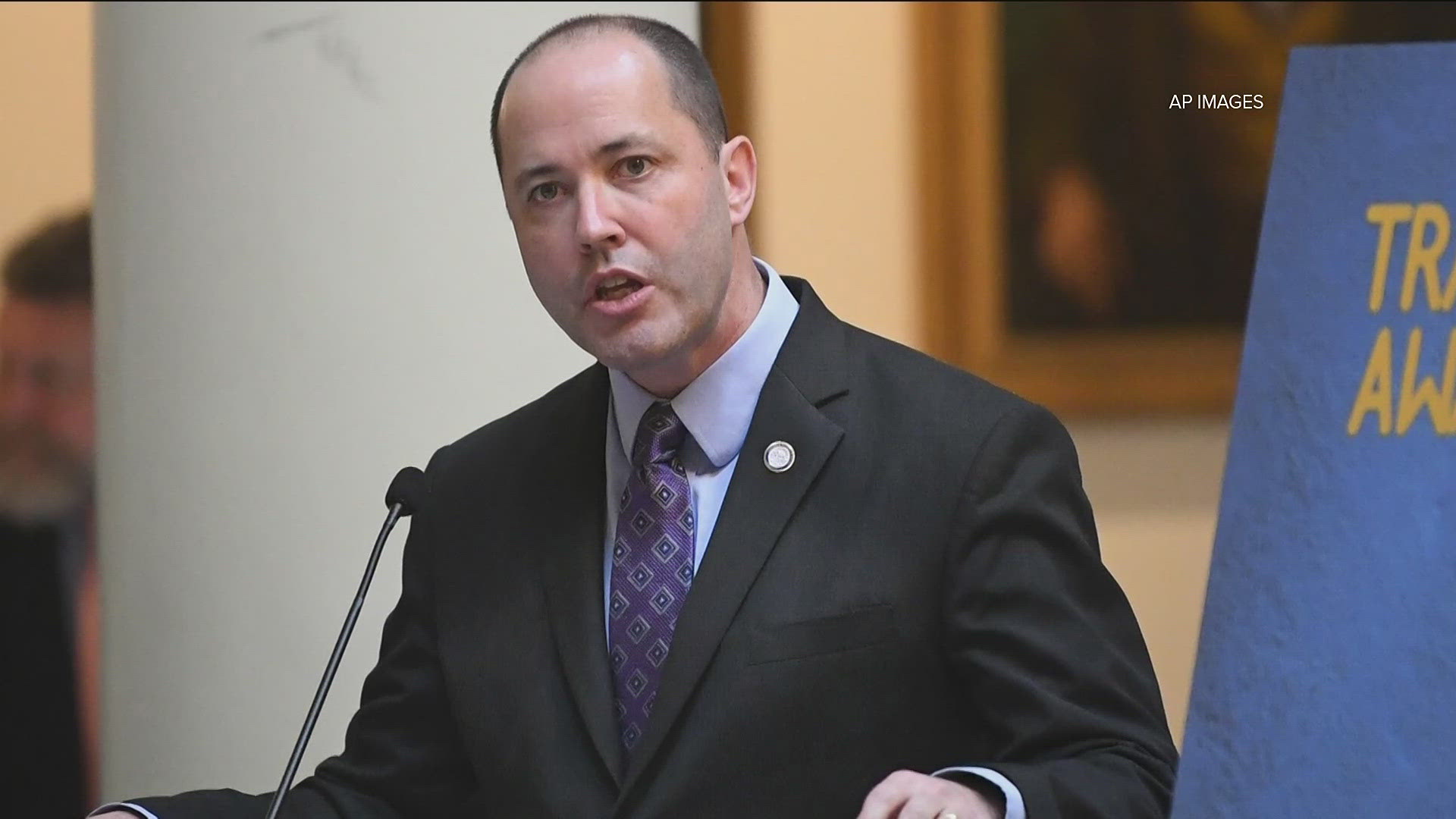ATLANTA -- A city ethics investigation into last-minute bonus payments and contest winnings has found that Kasim Reed and his human resources director made more than $869,000 in payments at the end of his time as mayor that were against the law.
According to the report from the Atlanta ethics and auditor's offices, the payments were shared to 131 employees between November 2017 and February 2018 and included massive bonuses and winnings for a lip-syncing contest, along with $58,000 in duplicate bonuses that were paid in error to four executive-level employees. Taxes were also inaccurately reported to the Internal Revenue Service on five employees who received $15,000 each.
The city council ordered an independent review of the payments in May 2017. That report, released in August, found that not only were the payments inappropriate and an abuse of power, but also against state and city law.
Forty-three of the payments came directly from then-Mayor Reed in the form of "supplemental earnings" that ranged from an additional $3,701 to as much as $21,261. The report found that most were over $10,000 and some "increased the employee's yearly compensation to a level above the highest pay grade authorized for that position." Reed is also accused of giving away large monetary gifts to 34 employees for various party contests.
But according to the report, the mayor provided these funds outside of any payment structure allowed by the city and without the approval of the Atlanta City Council. This is against city ordinance.
The report goes on to say that the distribution of money this way also violates the "Gratuities Clause" of the Georgia Constitution.
"It has long been recognized that compensating public employees is a permissible of public funds," the report states. "However, such expenditures are not without limits, even in the employment context, if such expenditures violate the 'Gratuities Clause'."
It continues that while this applies to the state, it has been further applied to cities and counties by the Georgia Supreme Court.
"As a result, cities have the power and authority to set salaries and pay public employees for work performed in the service of the City," auditors said in the report. "However, cities may not give money away or expend money in ways that do not further a public service or provide a substantial future benefit to the City."
Further along in the report, auditors also take on actions by Reed's Human Resources Commissioner, Yvonne Cowser Yancy.
"It appears that the pay memo dated Jan. 7, 2018 takes the flawed position that an absence of legislation limiting bonuses means that bonuses are allowed," it said.
However, the report goes on to say that this was based on an informal Department of Law opinion that only deals with "hiring persons above the minimum grade," adding that there are restrictions on her authority that were specifically set up by the council.
Furthermore, the findings called out former Chief Financial Officer Jim Beard, claiming he "abused his position to authorize a bonus payment for himself."
Beard allegedly admitted to the act in an interview with the investigators filing the report, saying he instructed his accounts payable staff to process the bonus payments, which included a $15,000 bonus grossed up to $21,261 for himself.
After speaking with Reed's office and Yancy about available funds from departmental payroll budgets and the General Fund Reserve for the bonus payments in Reed's office with both the former mayor and Yancy.
"Beard also stated that following his conversation in Reed's office, Yancy hand-delivered an unsigned spreadsheet that included a list of employee names, positions, annual salaries and the bonus amounts to be paid," the report alleges. "And instructed him to process the payments on behalf of Reed."
However, a similar practice by members of the very council that commissioned the report also garnered the attention of ethics investigators who said that some members violated state and city law.
"Based on the City Code, council members are prohibited from giving excess funds to their assistants as year-end bonuses because salary funds are segregated and any left-over funds are required to be applied to the council member's carry-over budget," the report states, adding that the practice also violated the state gratuity clause.
It's unclear if the ethics audit will have any legal ramifications for those mentioned in the findings, however, the auditors did make several suggestions. Those will require council members preparing legislation that tightens city ordinances and makes clear where they fall back on state law. It also suggests removing any expired or repealed provisions from the code and correcting taxes due on bonus payments where applicable.



